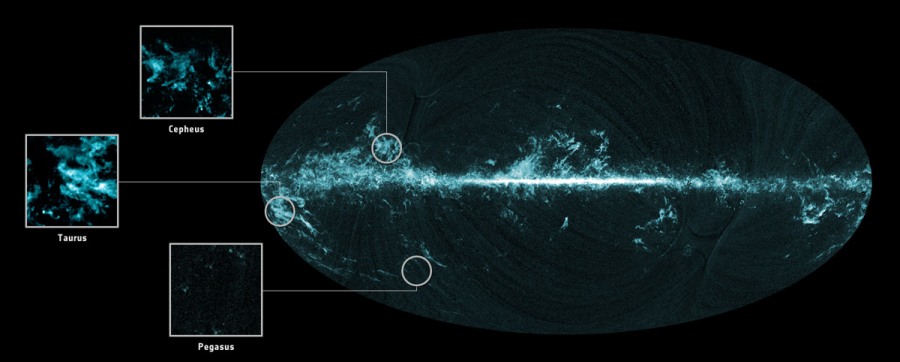New Planck results reveal unseen details throughout the Milky Way
Maps generated using data from the Planck satellite were presented at the conference “Astrophysics from the radio to the submillimetre – Planck and other experiments in temperature and polarization” held from February 13 to 17 in Bologna, Italy. These new results include an unambiguous detection of the Galactic Haze – a mysterious, diffuse emission from the central portion of the Milky Way – and the first all-sky map of carbon monoxide, whose emission traces the molecular clouds where stars are born. Professor Douglas Scott of UBC Department of Physics & Astronomy is a part of the Planck international collaboration, and leads one of the two Canadian teams funded by the Canadian Space Agency.

Planck is a European Space Agency mission, designed to study the cosmic microwave background (CMB) – the remnants of radiation from the Big Bang, and to measure its tiny fluctuations across the sky with unprecedented accuracy. In order to access the important information “hidden” behind layers of foreground emission within the data collected by Planck, a complex and delicate process of data “cleaning” – removal of the foreground emission– is required. After this process, the data sets can be used by researchers in astronomy to further investigate several hot topics in Galactic and extragalactic astronomy.
Results from Planck demonstrate that great progress has been made in identifying and isolating all contributions to the foreground emission. “These results show how well Planck is working, and how well we can do this ‘foreground cleaning’. We now look forward to the information that we will be able to extract from the ‘background’ itself, where we will learn about the properties of the Universe,” explains Dr. Douglas Scott.
For more information about the Planck Space Telescope, visit
Planck web page by the Canadian Space Agency
UBC Public Affairs Media Release in 2011 on UBC’s involvement in the Planck collaboration